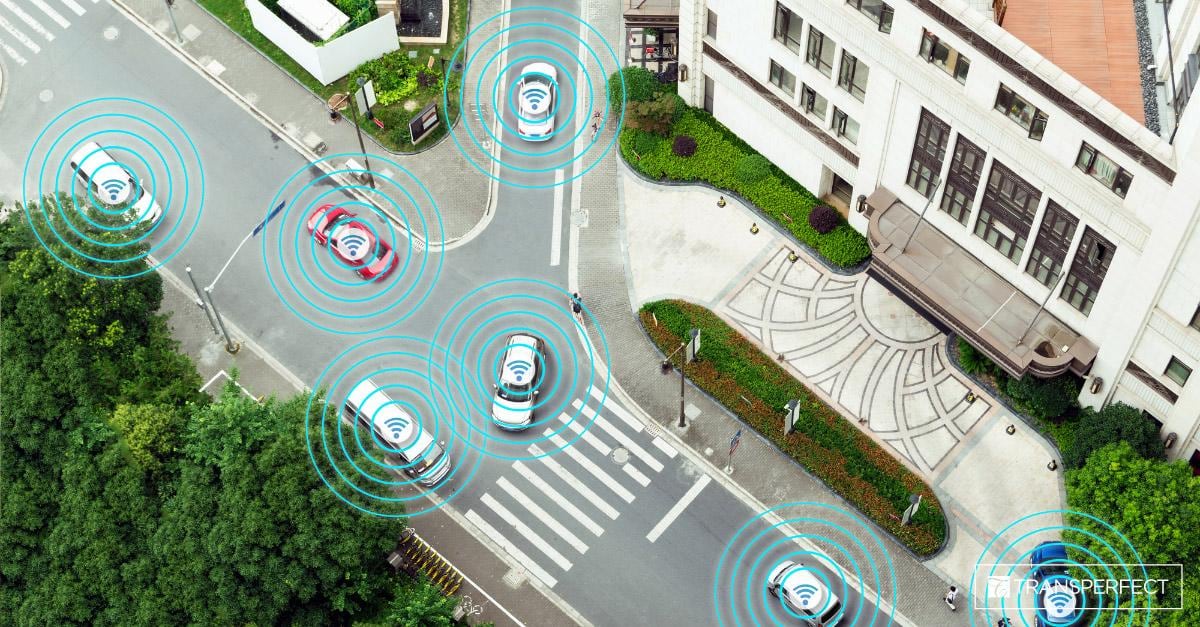5 Automotive Technology Trends in 2021


Did you know that 91.3% of American households have access to at least one vehicle?
Having a car is a staple of the American dream. Add in all the technological advances the automotive industry has made in the last decade, and the value increases that much more. These luxuries have the ability to improve our lives on the road.
While we’re not quite at the stage of flying cars, there are still several stellar innovations that have emerged in the industry. Here’s a summary of our five favorite automotive technology advancements that are trending in 2021.
1) Vehicle-to-Vehicle (V2V) Communications
For today’s drivers, most driving time is spent worrying about everyone else on the road, remaining focused, and staying alert. All it takes is a split-second distraction and a slow reaction to cause an accident.
Now imagine a world where your car can speak to other cars to know what they were all doing.
For example, the car in front of you slams on its brakes at the last second, or the car behind you makes an unexpected lane change. Vehicle-to-vehicle communication makes it possible for your car to react without you. It aims to make roads much safer and more efficient.
This communication also expands to vehicle-to-everything, which includes pedestrians, devices, infrastructure, grids, and networks. All of this can be connected to make sure road travel is optimized for everyone.
2) Mobility as a Service (MaaS)
Traditional vehicle ownership has evolved over the years.
More people are choosing to use mobility services instead of owning their own fleet of vehicles and bearing the costs. This is a great solution for city dwellers and businesses as it creates efficiencies and reduces pollution through less gas and diesel consumption.
We know about companies like Uber and Lyft, but start-ups that focus on MaaS are also springing up around the world.
Take US-based Launch Mobility, for example. Their platform offers shared dock-less scooters, keyless rental programs, peer-to-peer shared mobility, and free-floating or station-based car sharing.
3) Autonomous Vehicles
While flying cars still may not be a thing, self-driving cars are progressing.
When you think of driverless cars, you probably think of Tesla's autopilot setting or Google’s self-driving car. However, there are other players in the game worth mentioning.
For example, did you know there are aftermarket kits that transform your regular car into a self-driving car? In fact, the UK government recently announced that this technology will be gracing British roads as early as 2021.
In other words, if you’re not aware of this technology and how quickly it’s being implemented, you’re behind.
4) The Blockchain
Contrary to what some may think, the blockchain isn’t just for cryptocurrency and NFTs.
Car companies are using blockchain technology as a secure network for sharing vehicle data. This enables connectivity and shared mobility services, including deliveries, ride-hailing services, and urban transportation (yes, we’re talking about those scooters).
It also lets companies verify the supply chain of spare parts and raw materials, ensuring they come from legitimate sources.
5) Augmented and Virtual Reality
Car brands are already embracing augmented and virtual reality (AR and VR). In fact, BMW, Jaguar, Mazda, and MINI already use AR technology.
Automotive companies use AR to give drivers suggestions and help in real time via the central computer dashboard. This feeds the driver information about their surroundings and speed.
Virtual reality comes into play before you even get in the driving seat.
Typically, the end-to-end process of designing and producing cars takes up to five years. However, VR is speeding up the process, enabling quick and effective collaboration between designers and engineers.
Technology is transforming the automotive industry. Cars are omnipresent in almost every country around the world. But how do you make sure these technologies are working for everyone, including those who don’t speak English?
There are numerous crucial elements for automotive companies to consider within multilingual markets. TransPerfect can help with every aspect of globalization. From translating user manuals and websites to localized AI technology and in-vehicle systems, we know how.
Get in touch with our experienced team of industry professionals to find out more.



